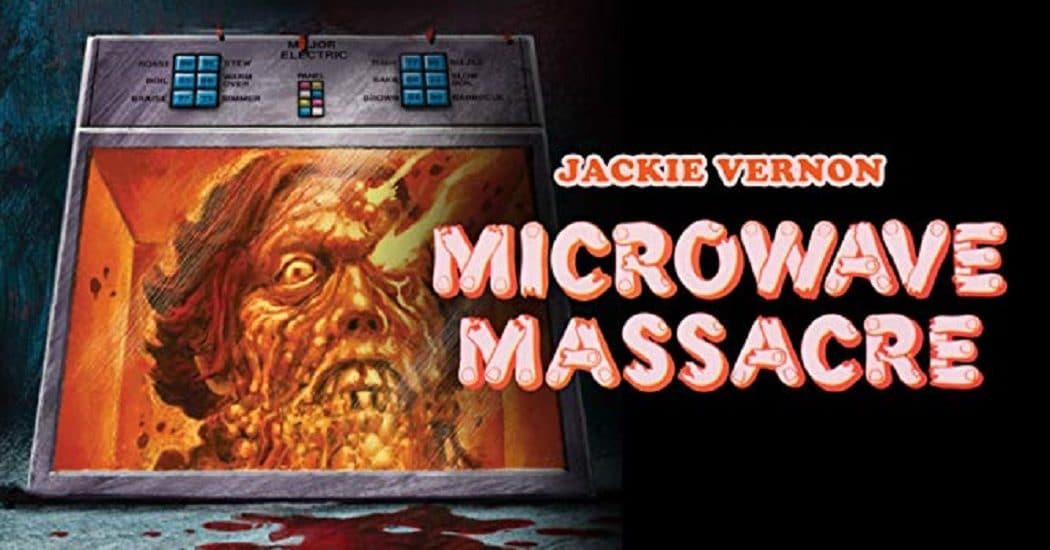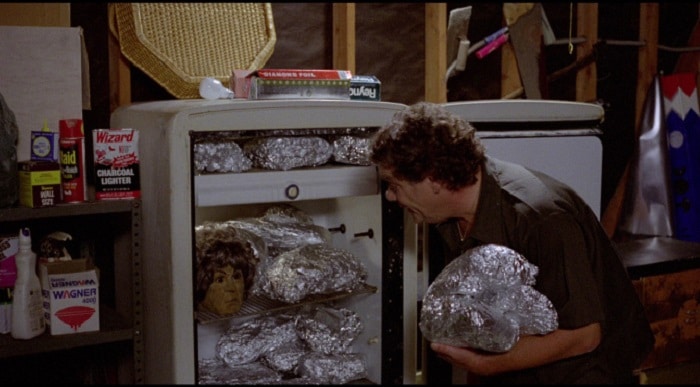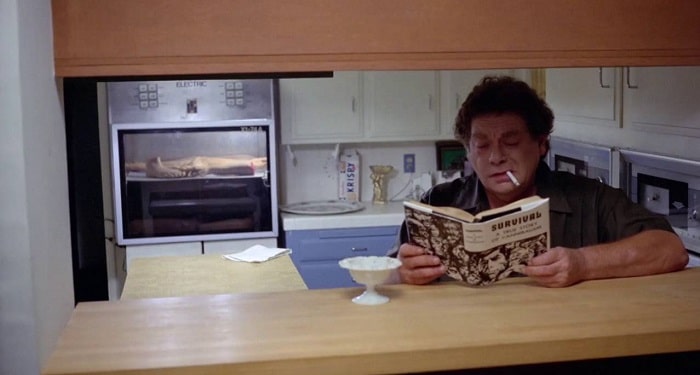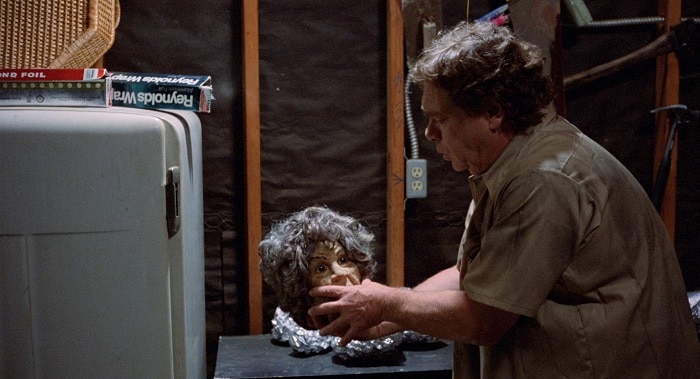
Cinema Fearité presents 'Microwave Massacre'
Massacre Movies are not all created equal. For every 'The Texas Chain Saw Massacre,' there's a 'Microwave Massacre.'
When it comes to titling horror movies, the word “massacre” gets used a lot. Sometimes, the resulting movies launch classic franchises, such as The Texas Chain Saw Massacre or the Corman “Massacre” series which includes gems like Sorority House Massacre and The Slumber Party Massacre. Other times, the movies wind up like Hospital Massacre and Mountaintop Motel Massacre, where they’re only remembered by the hardcore fright flick fans. And then, sometimes, the movies are like the 1983 cult film Microwave Massacre.

Microwave Massacre is about a construction worker named Donald (Jackie Vernon, best known as the voice of Frosty the Snowman in all of those Christmas TV specials) who longs for simple food like baloney and cheese. However, his wife, May (Claire Ginsberg in her only screen appearance), chooses to prepare fancy and elaborate meals. During a bad argument, Donald accidentally kills May, and disposes of her body in their garage refrigerator – right next to her gourmet leftovers. One night, Donald blindly reaches into the fridge for some grub, and pulls out one of May’s arms and starts munching away. And he likes it. With the taste of fresh human flesh on his mind, Donald hits the streets, searching out random pickups and prostitutes to find his next murderous meal.
Microwave Massacre was directed by Wayne Berwick (The Naked Monster) and written by Thomas Singer (Malibu High) from a story by Craig Muckler (Ripped to Shreds). The original vision for the movie was more of a straight-ahead horror flick, but the script went through enough changes for it to become a series of one-liners and sight gags that shoehorn tasteless and sophomoric humor into the otherwise disturbing story of murder and cannibalism. Even at a brisk 76 minutes, the film feels thickly padded, full of awkward conversations and lingering voyeuristic imagery. Berwick’s attempt at Roger Corman-esque black comedy is barely effective, and that’s when it is at all.

Indeed, Microwave Massacre seems to have a bit of an identity crisis. The film wants to be an exploitation film, and it does have its share of bloody gore mixed with over-the-top nudity. But the gratuitous sex and violence is just that – gratuitous. From the first shot of bouncing breasts in a tight shirt to the closing image of May’s disembodied head in the freezer, Microwave Massacre tries to catch its audience laughing. However, the humor in the movie is enigmatic. The intentional comedy falls flat, but the unintentional comedy is hysterical, in a “how did this get made” kind of a way. Microwave Massacre is the kind of movie that people like ironically. It’s a party movie. A drinking game movie.
The cinematography for Microwave Massacre was done by Karen Grossman, who also shot episodes of “Tales from the Darkside,” “Monsters,” and “The Hitchhiker.” Which makes sense, because Microwave Massacre looks like a run-and-gun television show. It was shot on 35mm film, but the limited sets and amateurish lighting give the production a straight-to-video feel or a student film vibe. There are shadows everywhere, some purposeful, but most a product of a hasty production schedule and a cheap budget. It may be ramshackle, but it fits. The cinematography in Microwave Massacre is par for the course with the brainless script and the ham-fisted acting.

The shining star in the darkness of Microwave Massacre is the score, and even that sounds recycled. The music is the only cinematic credit for composer Leif Horvath, and it’s a mostly electronic soundtrack that sounds almost like a parody of a classic mystery thriller, full of sharp stings and suspenseful vamps. It feels like a tribute, but it is a very well done one. Of course, the tongue does go firmly into the cheek in places, particularly over the closing credits when the music turns into what sounds like the theme from a foodie cooking show or a chef spotlight segment. The score never takes itself too seriously, and that’s why it’s the strongest aspect of the movie. Horvath’s music is in on the Microwave Massacre joke.
Is Microwave Massacre a good movie? Nah. Is it fun? At times, but not in the way that good splatter flicks usually are. So why watch it? That’s a good question. It’s all in the title. If you’re a completist of “Massacre” movies, well, that’s as good of a reason to watch as any.


